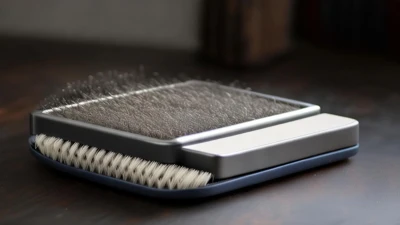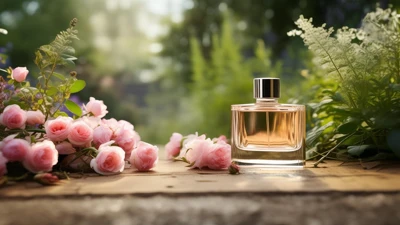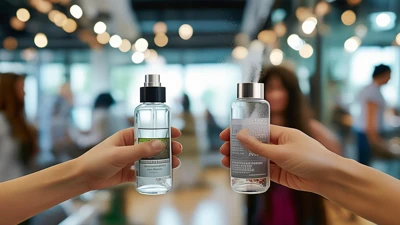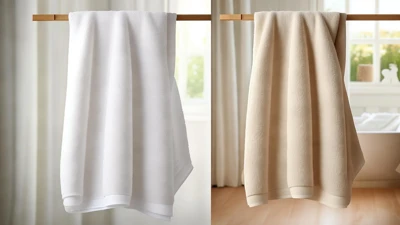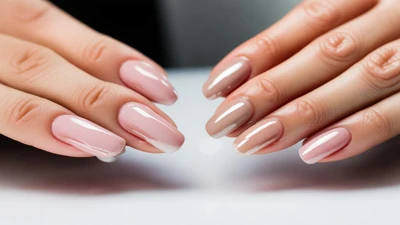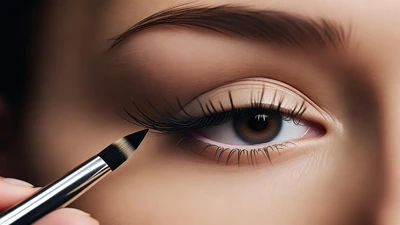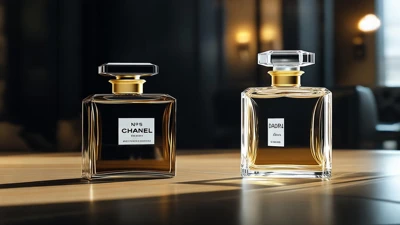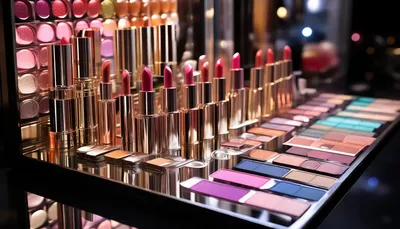
Frizz-Fighting Showdown: Argan Oil vs Moroccan Oil Solutions
The Frizz Predicament and the Emergence of Oil-Centric Answers.
Frizz happens when there is too much humidity. It can also occur if the cuticles are damaged or if it runs in the family. In the search for smooth hair, argan oil and Moroccan oil treatments have become highly popular. Although the terms are frequently used interchangeably, they actually represent different formulations. This essay breaks down their differences, assesses scientific and anecdotal evidence, and provides a detailed perspective on which oil is best for fighting frizz.
Part 1 of the Guide: Analyzing the Oils—What They Contain and Their Backgrounds.
1.1 Argan Oil: The "Liquid Gold" of Morocco.
The Argania spinosa tree, found in Morocco, produces kernels that are used to extract argan oil. This oil is rich in oleic acid (45–55%), linoleic acid (30–35%), and vitamin E. These components go into the hair shaft. They seal the cuticles. They also repel moisture. This process controls frizz. The Journal of Cosmetic Dermatology published findings in 2020 showing that argan oil reduces protein loss by 42% in chemically treated hair. Its reparative qualities are clear.
1.2 Moroccan Oil Offers Two Options. Each is Made with a Proprietary Brand Formula.
The Moroccan Oil® product line features a blend of argan oil and silicones, e.g., Cyclopentasiloxane and antioxidant compounds. With argan oil as the highlight, silicones contribute to easier application and visible shine. As silicones collect on the hair, it becomes important to consider clarifying treatments in the long run.
Pure argan oil consists of a single ingredient. In contrast, Moroccan Oil is a blend crafted for sensory pleasure and immediate outcomes.
Part 2: Analyzing Frizz Control Processes—The Difference Between Scientific Evidence and Marketing Tactics.
2.1 The Process Behind Argan Oil's Action.
The low molecular weight of argan oil allows it to reach the hair cortex. There, it binds with keratin proteins. It improves the strength of the hair while lowering the impact of hygral fatigue caused by humidity-related swelling and shrinking. Argan oil has been shown to lower water retention in hair by 30% during high humidity, as stated in a 2019 study. Less water retention correlates with reduced frizz.
2.2 Diverse Facets Characterize Moroccan Oil's Approach.
Using Moroccan Oil leads to the formation of a hydrophobic coating on the hair, which temporarily locks the cuticles shut. The result is instant smoothness. Long-term repair benefits are missing though. The product's scent and light texture improve the user experience, which is why it is popular in salons.
As per a 2022 survey by Allure magazine, Moroccan Oil was the top choice for 68% of stylists when doing quick blowouts thanks to its 'silky finish.' In contrast, 54% of at-home users faced buildup problems after using it repeatedly.
Chapter 3: Observing Real-World Outcomes—Details from Case Studies and Reports on User Experiences.
3.1 Researchers conducted a single clinical trial on argan oil.
In 2021, a Moroccan cooperative conducted a 12-week trial. They discovered that 85% of participants with chemically straightened hair had less frizz after using pure argan oil three times a week. Tests measuring tensile strength reveal that hair elasticity is 27% better.
3.2 Moroccan Oil is a popular choice in salons.
The use of Moroccan Oil treatments pre-styling led to a 30% boost in client satisfaction at New York City's Evo Hair Salon. Silicone buildup caused limpness in 20% of clients who have fine hair.
I have thick, curly hair, and I discovered that argan oil is a great solution for reducing frizz in the long run. Although Moroccan Oil provided a shiny result, regular clarifying treatments were necessary to maintain fresh and non-greasy hair.
Chapter 4 looks at how the environment and lifestyle interact.
4.1 Climate Adaptability in Relation to Humidity.
Argan oil has properties that repel water, making it great for tropical areas. In contrast, when exposed to high temperatures, the silicones in Moroccan Oil can melt and increase frizz in humid climates. A 2023 study published in Environmental Research Letters found that silicone-based products did not perform well in Miami's humidity. Pure oils, on the other hand, fared much better.
4.2 Variation Exists in Two Forms of Hair Type.
If you have coarse or curly hair, argan oil helps by addressing dryness directly at the root.
The lightweight nature of Moroccan Oil works well for fine or straight hair. Buildup could still occur with regular use.
Unit 5: Building Sustainable and Ethically Sourced Operations.
5.1 Argan Oil has a significant cultural impact. It also affects the ecology.
Cooperatives managed by Berber women in Morocco gain strength from argan oil production. This fosters fair trade. Overharvesting led to deforestation, and UNESCO responded by designating the Arganeraie Biosphere Reserve in 1998.
5.2 Moroccan Oil's Corporate Responsibility Efforts.
The argan oil used by Moroccan Oil® is sourced ethically, yet the presence of silicones raises questions about environmental safety. Silicones are not biodegradable and pollute water sources.
Some consumers believe in supporting fair-trade practices. These individuals may buy argan oil instead of Moroccan Oil despite the latter's convenience.
Section Six: Comparing Costs and Benefits.
6.1 Price Points.
Prices for Pure Argan Oil fall within the range of $15 to $50 per ounce. Higher prices are associated with higher purity and greater oleic acid content.
Moroccan Oil Treatment comes in a 3-ounce size. Its price is $36 to $45. 4 oz, with pricing tied to brand exclusivity and advanced formulation design.
6.2 Long-Term Value.
Moroccan Oil works fast, whereas argan oil repairs hair gradually. Over time, this reduces the need for frequent trims and saves you money.
Section 7 discusses personal insights. It also explores cultural perceptions.
7.1 People Believe in the Myth of 'Moroccan Oil'.
Some consumers think Moroccan Oil and argan oil are the same thing. There are misconceptions about how effective it is as a result of this marketing achievement.
7.2 Cultural Symbolism.
In Morocco, argan oil has been valued for centuries. People use it in their meals and to maintain healthy skin. The fact that it is loved worldwide has made it a status symbol. This mirrors the popularity of olive oil in Mediterranean diets.
As a child in Casablanca, I had my grandmother put argan oil in my hair. She didn't know that this oil would one day be worth billions. This nostalgia makes me lean toward pure argan oil, even though Moroccan Oil is tempting.
End Result: Choosing What Beats Frizz Best.
Different scenarios call for different oils, where each performs exceptionally.
Curly and damaged hair thrives with argan oil. The product minimizes frizz and aligns with eco-friendly values due to its reparative formulation.
If you're looking for instant smoothness and sensory delight, try Moroccan Oil. It works well for occasional use or for fine hair types.
It all boils down to one question: do you value immediate appearance or long-term health more? The beauty industry is changing. Products that mix argan oil with eco-friendly silicones could offer the benefits of both in the near future.







